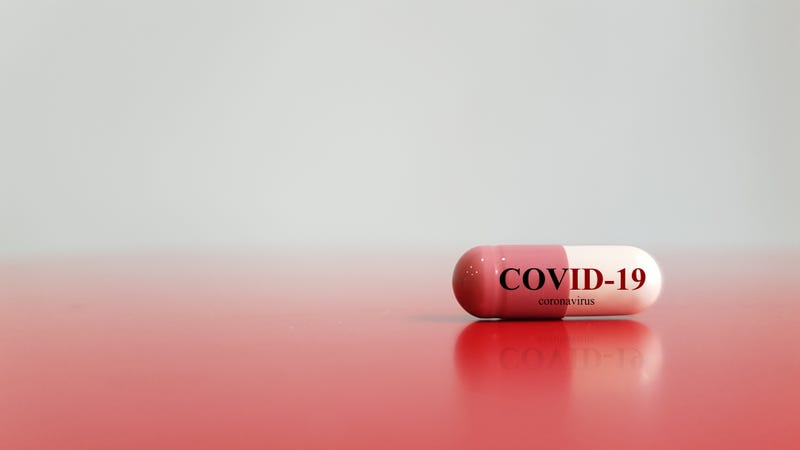
Despite the increasing threat of the omicron variant, some good news has come out over the last couple of days in the race to stem the new surge.
Merck's antiviral COVID-19 pill treatment was finally approved by the FDA on Thursday, just after Pfizer's version was approved Wednesday.

And recent research has shown that those infected with the omicron variant of COVID-19 are as much as 70% less likely to need hospitalization than those infected with delta.
"The fact that it's not able to hospitalize at the same rate as delta is, I think, a cause for celebration," said Dr. Amesh Adalja, a senior scholar at the Johns Hopkins University Center for Health Security on KCBS Radio's "Ask an Expert" with Matt Bigler on Thursday.
"However, you have to remember that we already know that omicron can still kill," he said. "There are people that have died in the United Kingdom and the United States and Israel from the omicron variant."
So despite the low hospitalization rate, if it's able to spread quickly through unvaccinated populations that are high risk for hospitalization, it could still be enough to push hospitals to the brink, he said.
"It's not just about severity, it's about how quickly it will spread in those high-risk populations," said Adalja.
It's been shown how easily this variant can spread, particularly amongst the unvaccinated. For those still refusing to get vaccinated, the new variant will present a challenge. "Omicron will walk right over their natural immunity," he said.
Even if someone has already had COVID-19, the immunity offered by having the virus already is not comparable to the immunity given by the vaccine. Natural immunity is far more unpredictable and doesn't necessarily protect against other variants. "You might have been able to get away with it with the original strain," but not anymore, he said.
But the approval of these pill treatments is a major milestone in the pandemic. "I think it's a sign that COVID-19 is going to become a much more treatable infection," he said.
The Pfizer pill is a more effective treatment than the Merck pill, he said, but both are going to be in short supply in the coming weeks, so it will take some time to really note the pills’ impact.
"This is probably the best news we’ve seen since the vaccine," he said.
Because these treatments are prescription-only, it's important to get tested as soon as possible to effectively treat the virus. "There is a window where they work really well," said Adalja, of about three days. After some time, they're not as helpful.

